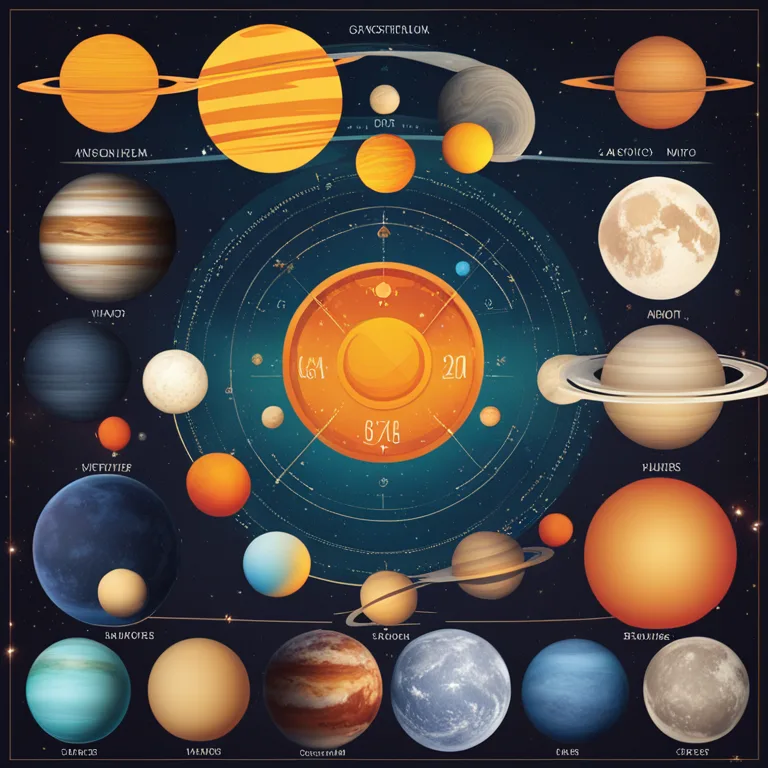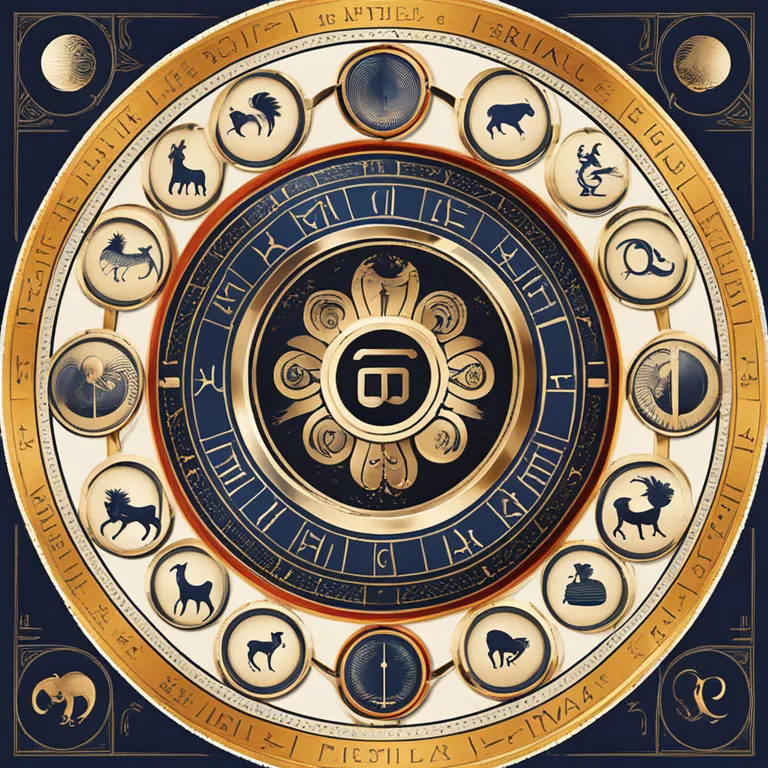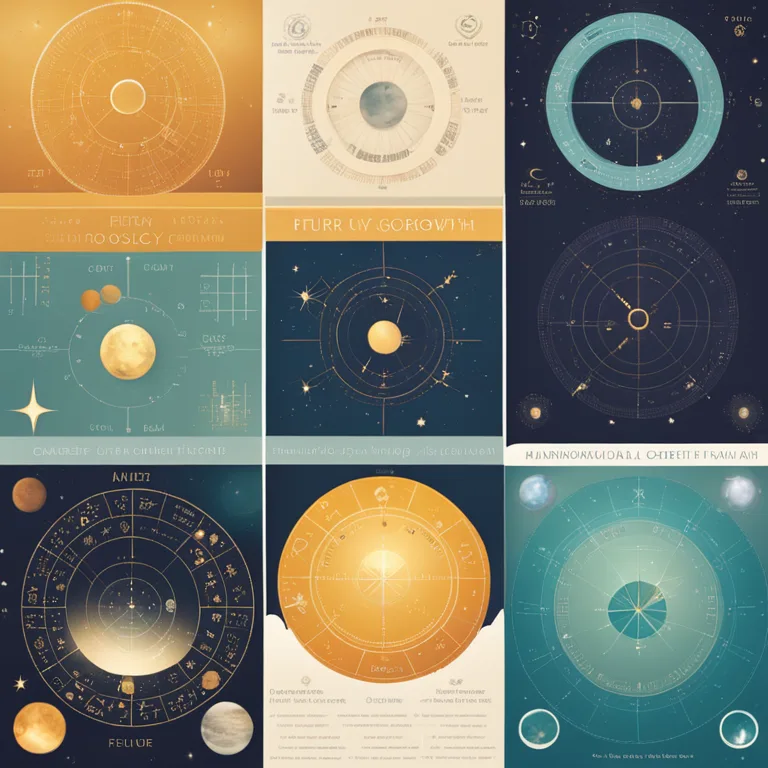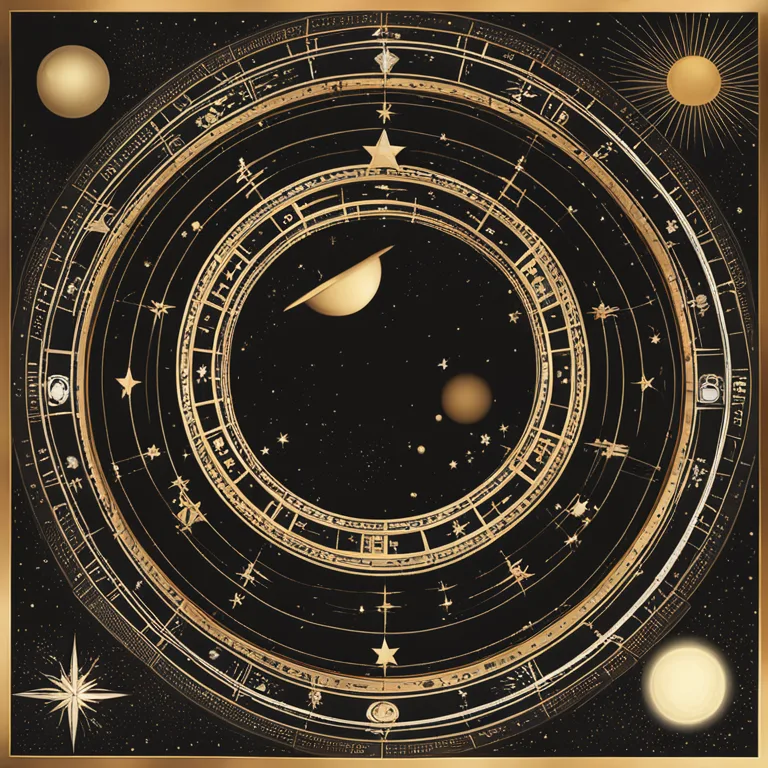
The Mechanics of Astrology: Insights into Cosmic Influence
Delve into the mechanics of astrology to comprehend how celestial bodies purportedly impact human destinies and personalities.
article by Priya Deshmukh
Astrological Foundations
Astrology is an ancient practice that suggests a symbolic connection between the positions of celestial bodies and events on Earth, especially in the context of human lives and personalities. Central to astrological philosophy is the belief that the alignment of stars and planets at the time of one´s birth molds one´s character and fate. This intricate web of cosmic influence spans across various cultures, each adding unique interpretations to the astrological chart. As we embark on this celestial tour, we stride forward into an understanding of astrology rooted in tradition yet evolving with modern insights.

Zodiac Signs and Personal Traits
At the heart of astrology are the twelve zodiac signs, each corresponding to a thirty-degree segment of the ecliptic. These signs are said to exert distinct influences on individuals based on the sun's position at their birth. Aries, for instance, is often associated with courage and initiative, while Libra suggests harmony and balance. As we progress into 2024 and beyond, astrologers consider current planetary movements through these signs to forecast trends and guidance for each sign's representatives.

Planetary Impact on Personal Horoscopes
The planets are also key players in astrology, each bestowed with specific attributes. Venus, for instance, governs love and beauty, whereas Mars is linked to energy and aggression. In constructing personal horoscopes, astrologers must calculate the positions of these planets in the signs and houses, with the outlook for 2024 indicating a period of transformative Pluto transits and Jupiter´s expansive presence in Aries. The interpretation of these transits provides insights into potential life events and personal growth.

Birth Charts and Real-world Applications
Birth charts, or natal charts, are astrological snapshots of the sky at the moment of an individual's birth. They serve as a celestial roadmap, highlighting strengths, weaknesses, and potential life pathways. Such charts become frameworks for personalized forecasts, relationship compatibility analysis, and even career guidance. As society adapts to the ever-changing world, astrologers use upcoming astrological trends, like the upcoming Saturn return cycle in 2024, to help individuals prepare for the challenges and opportunities ahead.

Modern Astrology and Skepticism
While astrology boasts a legion of adherents, it also faces skepticism and criticism. Critics often point to a lack of empirical evidence and the problem of vagueness in astrological predictions. Nevertheless, astrology continues to thrive in contemporary culture as a source of comfort and introspection for many. Its role is less about deterministic predictions and more about offering a reflective tool for personal development and understanding.
Astrological Forecast for 2024 and Onward
Entering 2024, astrologers focus on the significant shifts in planetary positions to shape the collective and individual narratives. Among the anticipated astrological phenomena is the movement of Jupiter into Taurus, suggesting a period of growth and stability. Such forecasts, while not scientifically substantiated, provide astrological enthusiasts with a cosmic weather report framing their expectations for the future.
Published: 12/29/2023
Modified: 12/29/2023
More predictions
Come back here soon to learn more about yourself and your future


The Essence Of Your Birth Chart Wheel
Delve into the layers of your personality by understanding the key components of your birth chart wheel, an astrological tool for self-discovery.


Birth Chart & Predicting Marriage
Discover the potential of birth charts in forecasting matrimonial bliss and partnerships, with a cosmic lens on future commitments.


Birth Chart Without Time: Overview
Discover insights into analyzing a birth chart when the exact time of birth is unknown, providing alternative astrology approaches for clarity.